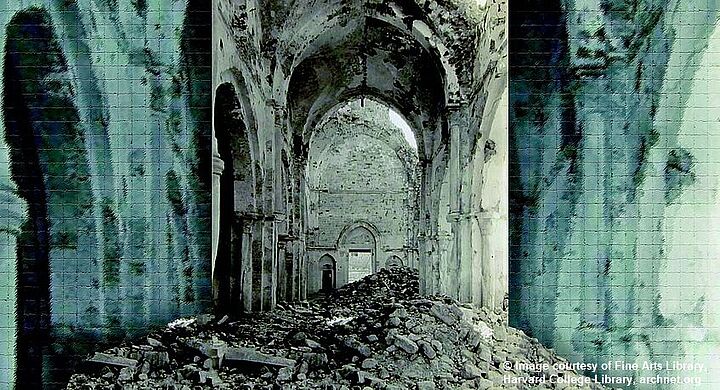Mittwoch, 22. Januar 2025, 17:00 - 18:30 iCal
Ringvorlesung Turkologie Wintersemester 2024/25
Cultural Heritage in the Middle East and Central Asia: Conservation and Destruction
October 9th, 2024 - January 22th, 2025, 5PM - 6:30PM
Institut für Orientalistik, Hörsaal
Spitalgasse 2, Hof 4.1 (Campus Universität Wien), A-1090 Wien
Hybrider Event (an einem physischen Ort und online)
Conservation or Destruction: A Review of Urban Policies towards the Historical Areas of Iranian Cities during the Last Four Decades
Mahshid Sehizadeh / Mohammad S. Izadi (Bu-Ali Sina University)
Abstract
The long history of urbanization in Iran on one hand & the fast pace of modernizing the built environment in a petroleum exporting country on the other, has led to plenty of trials errors when it comes to policies affecting urban heritage in this important Middle Eastern country. Urban development policies with impact on the protection or destruction of historical areas in Iranian cities are more considerable in recent decades; particularly after the end of an eight years’ war with Iraq in 1988. These policies which have been employed by the urban authorities in each government during the last four decades can be divided into two main groups:
The first group are policies used in urban projects known as “Comprehensive and Detailed plans”, ordered for different cities by the Ministry of Urban Development. Discussing the different approaches employed in this group of projects towards the historic areas of Iranian cities is the subject of the first part of this presentation.
The second group are policies used in “Action and Strategic plans”, prepared for historical areas of Iranian cities by different authorities. This group can be classified in five different categories based on the scope of their intervention.
The analytical review of these policies & their outcomes to the present shows that despite the existence of some exceptions, they have been inconsiderate about the urban heritage & caused noticeable damages to the historic areas of Iranian cities. The reason can be sought in the lack of harmony & efficiency of factors needed for the success of an urban project, including the existing problems with rules/resources/ideas (hardware factors) & municipalities/government/private sector (software factors).
Bio
Mohammad Saeid Izadi is an assistant professor at Bu-Ali Sina University, Iran. He received his master’s degree in architecture from Tehran University & his doctoral dissertation at Newcastle University was regarding different approaches to the revitalization of historical urban areas in Iran. Among his key positions, Dr Izadi was appointed as the deputy of Iran’s Minister of Roads and Urban Development from 2013 to 2019. He teaches in the areas of urban regeneration and conservation with focuses on the quality of life, public space improvement, and the adaptive reuse of historic buildings. Furthermore, he is working to establish a model for participatory design and tools for engaging communities in the design and planning process.
Mahshid Sehizadeh holds a master's degree in architecture from the University of Tehran's Fine Arts Faculty and a PhD in Urban Design with a focus on Urban Restoration from Newcastle University. Her research in the UK was about socio-spatial aspects of change in the transformation process of a historical city. She has worked more than two decades as an architect and urban designer in consulting engineers & cultural heritage organization. Since 1997, she has been teaching and researching mainly in the fields of urban regeneration, public space revitalization and restoration of historical areas. She is an assistant professor at Bu-Ali Sina University, Iran.
Zur Webseite der Veranstaltung
Veranstalter
Kontakt
Ayse Dilsiz Hartmuth
Institut für Orientalistik
+43-1-4277-43405
ayse.dilsiz.hartmuth@univie.ac.at
Erstellt am Dienstag, 26. November 2024, 13:20
Letzte Änderung am Dienstag, 26. November 2024, 13:20

